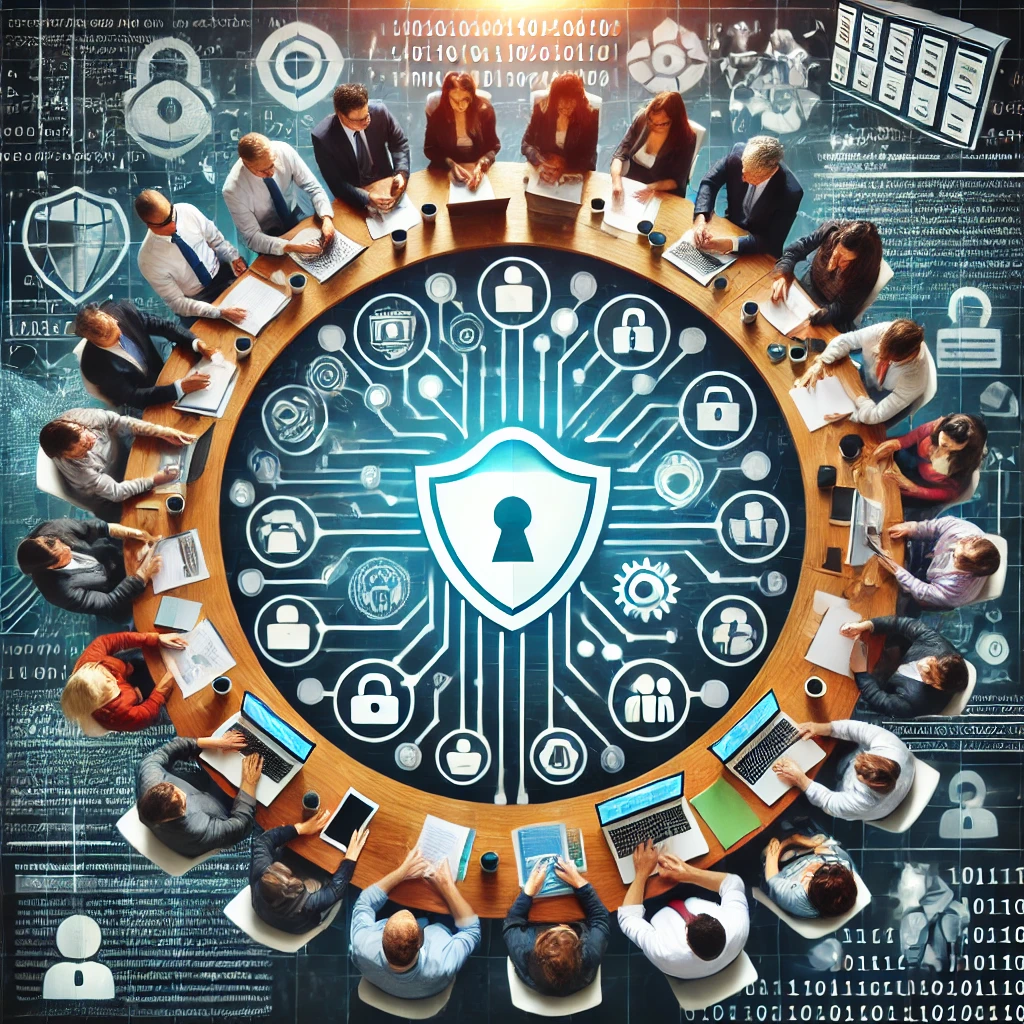
In the rapidly evolving field of cybersecurity, staying ahead of the latest threats, tools, and techniques is crucial. However, learning and keeping up with the vast amount of information can be daunting, especially for beginners. This is where the power of community comes into play. Communities, both online and offline, provide invaluable support, resources, and opportunities for collaboration, making the journey of learning cybersecurity more effective and enjoyable. In this blog, we will explore the importance of community in cybersecurity learning and how it can benefit learners at all levels.
1. Access to Collective Knowledge
Leveraging Collective Expertise
One of the most significant advantages of being part of a cybersecurity community is access to a wealth of collective knowledge. Communities bring together individuals with diverse experiences, skills, and backgrounds, creating a rich repository of information. Members can share insights, solve problems collaboratively, and learn from each other’s successes and mistakes.
Real-World Insights
Communities often include seasoned professionals who share real-world experiences and case studies. These insights can provide practical knowledge that goes beyond theoretical learning, helping members understand how to apply concepts in real-world scenarios. This practical approach is invaluable for developing problem-solving skills and gaining a deeper understanding of cybersecurity practices.
Up-to-Date Information
Cybersecurity threats and technologies evolve rapidly. Being part of a community ensures that learners stay informed about the latest trends, vulnerabilities, and defense mechanisms. Community members often share news, updates, and analysis, providing timely information that is crucial for staying ahead in the field.
2. Networking Opportunities
Building Professional Relationships
Networking is a key component of career growth in cybersecurity. Communities provide a platform for individuals to connect with peers, mentors, and industry experts. These connections can lead to job opportunities, collaborations, and professional development. Building a strong professional network can open doors to new career paths and advancements.
Mentorship and Guidance
Having a mentor can significantly accelerate the learning process. Many cybersecurity communities offer mentorship programs where experienced professionals guide beginners, providing personalized advice and support. Mentors can help learners navigate their career paths, set goals, and overcome challenges.
Collaboration and Teamwork
Cybersecurity often requires collaboration and teamwork. Being part of a community allows individuals to work together on projects, participate in capture the flag (CTF) competitions, and contribute to open-source initiatives. Collaborative efforts enhance learning and foster a sense of camaraderie and shared purpose.
3. Learning Resources and Tools
Access to Curated Content
Communities often curate and share high-quality learning resources, including tutorials, courses, books, and tools. This curated content can save learners time and effort in finding reliable and relevant materials. Platforms like Writeup-DB, which aggregate and curate technical writeups, exemplify how communities can provide valuable resources for learning.
Hands-On Learning
Practical, hands-on experience is essential for mastering cybersecurity skills. Many communities organize workshops, labs, and training sessions where members can practice and hone their skills. These hands-on activities provide a safe environment for experimentation and learning from mistakes.
Tool Recommendations and Reviews
Cybersecurity professionals rely on various tools for tasks like vulnerability scanning, penetration testing, and threat analysis. Communities often share recommendations and reviews of tools, helping members choose the right ones for their needs. Access to tried-and-tested tools can enhance efficiency and effectiveness in cybersecurity tasks.
4. Emotional and Moral Support
Encouragement and Motivation
Learning cybersecurity can be challenging and sometimes overwhelming. Being part of a supportive community provides encouragement and motivation. Members can share their struggles, celebrate successes, and offer words of encouragement to each other. This support system helps learners stay motivated and resilient.
Safe Space for Questions
Communities create a safe space for asking questions and seeking help without judgment. Beginners can freely ask questions, no matter how basic, and receive answers from more experienced members. This openness fosters a positive learning environment where everyone can grow.
Shared Goals and Vision
Being part of a community with shared goals and a common vision creates a sense of belonging and purpose. Whether it’s protecting organizations from cyber threats, contributing to open-source projects, or advocating for cybersecurity awareness, having a shared mission unites members and drives collective efforts.
5. Career Development and Opportunities
Job Listings and Career Advice
Many cybersecurity communities have dedicated channels or sections for job listings and career advice. Members can find job opportunities, internships, and freelance gigs shared by other members or community partners. Career advice from experienced professionals can help learners navigate the job market and advance their careers.
Skill Development and Certifications
Communities often provide information and guidance on skill development and certifications. Members can learn about the most valuable certifications in cybersecurity, get study tips, and find study groups. Earning certifications can enhance credibility and open up new career opportunities.
Recognition and Contributions
Active participation in a community can lead to recognition and opportunities to contribute. Members can showcase their expertise by writing articles, presenting at webinars, or contributing to community projects. Recognition within the community can boost confidence and establish a professional reputation.
Conclusion
The importance of community in cybersecurity learning cannot be overstated. Communities provide access to collective knowledge, networking opportunities, learning resources, emotional support, and career development. Whether you’re a beginner or an experienced professional, being part of a cybersecurity community can significantly enhance your learning journey and career growth.
As you embark on or continue your cybersecurity learning journey, consider joining and actively participating in communities that align with your interests and goals. Platforms like Writeup-DB, online forums, local meetups, and professional organizations offer a wealth of resources and opportunities to connect with like-minded individuals. Embrace the power of community, and let it guide you towards success in the dynamic and ever-evolving field of cybersecurity.
Happy learning and stay secure!
